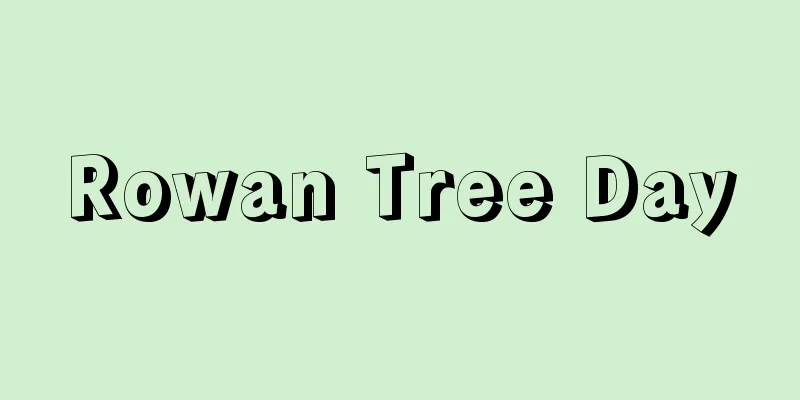Morgan, Thomas Hunt

|
Born September 25, 1866 in Lexington, Kentucky [Died] December 4, 1945. Pasadena, Los Angeles. American geneticist and embryologist. Graduated from the University of Kentucky (1886). After receiving his doctorate from Johns Hopkins University in 1890, he became a professor at Bryn Mawr College, where he was influenced by his colleague J. Robe. He studied the effects of salt concentration in culture medium on development. He became a professor of zoology at Columbia University (1904). He was sympathetic to H. de Vries's mutation theory, and in 1908 he began raising Drosophila melanogaster with the intention of discovering mutations in animals. Until that time, he had been critical of G. Mendel's genetic theory, and had also argued against the theory of T. Boveri and others that chromosomes are the determining factor of traits. The following year, he obtained eye color mutants, and while conducting crossbreeding experiments using these, he not only came to fully accept Mendel's theory, but also agreed with the theory of chromosomal determination of traits, and linked the two to establish the chromosomal theory of inheritance. This theory, which states that chromosomes are nothing more than linear arrangements of Mendel's genetic elements, linked cytology and genetics, which had previously developed independently, and opened up a new field of research known as cytogenetics. In 1928, he founded the Department of Biology at the California Institute of Technology, which led him to abandon genetic research and focus on developmental biology. With regard to biological research methods, he advocated that experimental methods should be used in place of the traditional descriptive methods, and he continued to intend to integrate the various branches of biology. For establishing the chromosome theory of inheritance, he was awarded the Nobel Prize in Physiology or Medicine in 1933. Morgan |
|
[生]1866.9.25. ケンタッキー,レキシントン [没]1945.12.4. ロサンゼルス,パサディナ アメリカの遺伝学者,発生学者。ケンタッキー州立大学卒業 (1886) 。 1890年ジョンズ・ホプキンズ大学より学位取得後,ブリンマー・カレッジ教授となり,ここで同僚の J.レープから影響を受ける。発生に対して培養液の塩濃度が及ぼす作用などについて研究。コロンビア大学動物学教授 (1904) 。 H.ド・フリースの突然変異説に共感し,動物で突然変異を発見しようと意図して,1908年にショウジョウバエの飼育を開始した。その頃まで彼は G.メンデルの遺伝子説に対して批判的であり,また染色体を形質決定要因とみなす T.ボベリらの学説に対しても反論を加えていた。翌年,眼色に関する突然変異体を得,これを用いて交雑実験を行なっているうちに,メンデルの理論を全面的に受入れるようになったばかりか,染色体による形質決定説にも賛同し,両者を結びつけて遺伝の染色体説を樹立した。染色体はメンデルのいう遺伝要素が直線的に配列したものにほかならないとするこの説は,それまで互いに独立に発達をとげてきた細胞学と遺伝学とを連結し,細胞遺伝学という新たな研究領域を開いた。 28年カリフォルニア工科大学に生物学教室を創設。それを機に遺伝学の研究から手をひいて,以来発生学に専念。生物学の研究方法に関して彼は,従来の記述的方法を排し,実験的方法をとるべきであると主張し,また,生物学の各分科を統合しようという意図をもち続けた。遺伝の染色体説を確立したことにより,33年にノーベル生理学・医学賞を受賞した。 モーガン
|
Recommend
Skiben
...The coastal areas of the country were therefor...
Lhotse [mountain] - Lhotse
It is one of the peaks in the Chomolungma (Everest...
Norrköping (English spelling)
A port city in southeastern Sweden, 135 km southwe...
Platylambrus validus (Hishigani)
A decapod crustacean of the family Palaeidae (illu...
comes
…The most active office at court was the archival...
Planoudēs, Maximos
[Born] 1255. Nicomedia [died] c.1305 Byzantine phi...
Chizu [town] - Chizu
A town in Yazu County in the southeastern part of ...
SP500 Stock Average - S.P.500 500 Stock Average
...In other words, the weighting factor in the we...
Kamakura period
The Kamakura period is a name given to a period b...
Viola vaginata (English spelling) Viola lavaginata
… [Yukio Taniguchi]. … *Some of the terminology t...
Involution - Involution
Please see the "Match" page. Source: En...
Eggnogg
…It was once a Christmas drink in the southern Un...
Parakeet (Parakeet) - Parakeet (English spelling)
A general term for birds in the Psittacidae family...
Schlieffen, Alfred, Graf von
Born: February 28, 1833, Berlin Died January 4, 19...
"Outline of the Christian Soldier" - Let's fight with Christ
...His works total 10 volumes and 11 books in fol...









